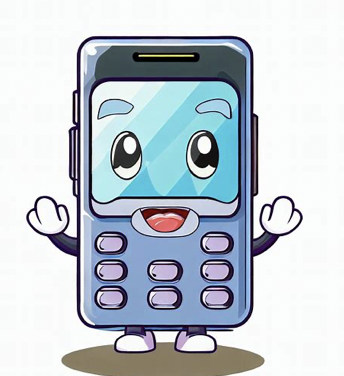With each new release of the iPhone, Apple introduces a range of exciting features and improvements.
However, as technology advances, older devices may eventually reach a point where they are no longer compatible with the latest software updates.
This raises the question: when will the iPhone 11 stop receiving updates?
When Will the iPhone 11 Stop Updating?
It generally depends on Apple’s policy, which tends to offer software updates for devices for many years after their release. Typically, this is 5-6 years after the phone’s release date.
The phone will still work after this point, but will not receive software updates.
Below we look deeper into the factors that determine the lifespan of iPhone updates and provide valuable insights into the future of the iPhone 11.
Table of Contents
The Lifecycle of iPhone Updates
Before delving into the specific timeline for the iPhone 11, it is important to understand the general lifecycle of iPhone updates.
Apple typically provides software updates for its devices for a certain period of time, after which they are no longer eligible for the latest iOS versions.
This is primarily due to hardware limitations and the need to optimize software for newer devices.
Apple’s update policy is generally generous compared to other smartphone manufacturers.
The company typically supports its devices with software updates for around five to six years after their initial release.
However, it is important to note that this timeline can vary depending on various factors, such as the device’s hardware capabilities and market demand.
Factors Influencing iPhone Update Lifespan
Several factors influence the lifespan of iPhone updates, including:
- Hardware capabilities: As technology advances, newer hardware components are introduced, which may require software optimizations. Older devices may lack the necessary hardware capabilities to support the latest updates.
- Performance: Apple aims to provide a smooth and seamless user experience with each software update. However, older devices may struggle to handle the increased demands of newer software versions, leading to performance issues.
- Market demand: Apple considers market demand when deciding how long to support a particular device. If a device continues to be popular and widely used, Apple may extend its update lifespan to cater to the needs of its user base.
The Future of iPhone 11 Updates
Now, let’s focus on the iPhone 11 specifically. The iPhone 11 was released in September 2019, which means it is still relatively new compared to older iPhone models.
Based on Apple’s update history, it is reasonable to expect that the iPhone 11 will continue to receive software updates for at least five years from its initial release.
This means that users can expect to receive updates until at least September 2024.
However, it is important to note that this is an estimate and Apple’s update policy may change in the future.
It is worth mentioning that even after a device stops receiving major software updates, Apple often continues to provide security updates for a certain period of time.
These security updates help protect the device from potential vulnerabilities and ensure a safe user experience.
FAQs – When Will the iPhone 11 Stop Updating?
1. Will the iPhone 11 have iOS 16?
Yes, the iPhone 11 has iOS 16 if it’s updated.
2. How long will the iPhone 11 continue to receive security updates?
Apple generally provides security updates for older devices even after they stop receiving major software updates.
The exact duration of security updates for the iPhone 11 will depend on Apple’s policies and the device’s popularity.
However, users can expect to receive security updates for a few years beyond the device’s last major software update.
3. Can I still use my iPhone 11 after it stops receiving updates?
Yes, you can still continue to use your iPhone 11 even after it stops receiving updates.
However, it is important to note that without the latest software updates, your device may become more vulnerable to security risks and may not be compatible with certain apps or features that require newer software versions.
4. Should I upgrade to a newer iPhone model when the iPhone 11 stops receiving updates?
Whether or not to upgrade to a newer iPhone model when the iPhone 11 stops receiving updates depends on your personal preferences and needs.
If you value having the latest software features and security updates, upgrading to a newer model may be beneficial.
However, if your iPhone 11 continues to meet your needs and you are satisfied with its performance, there may be no immediate need to upgrade.
5. How can I check if my iPhone 11 is still eligible for updates?
To check if your iPhone 11 is still eligible for updates, go to the “Settings” app, select “General,” and then tap on “Software Update.”
If a new update is available, it means your device is still supported.
If no update is available, it may indicate that your device has reached the end of its update lifespan.
6. Will my apps stop working when the iPhone 11 stops receiving updates?
While your existing apps should continue to work on your iPhone 11 even after it stops receiving updates, there is a possibility that some apps may no longer be compatible with older software versions.
App developers often optimize their apps for the latest iOS versions, which may result in certain apps becoming incompatible with older devices.
7. Can I jailbreak my iPhone 11 to continue receiving updates?
Jailbreaking your iPhone 11 is not recommended as it can void your device’s warranty and expose it to security risks.
Additionally, jailbreaking does not guarantee access to official software updates. It is always best to rely on Apple’s official updates for a secure and reliable user experience.
8. Will the iPhone 11’s performance be affected by future updates?
While Apple aims to optimize software updates for older devices, there is a possibility that future updates may introduce new features or improvements that require more processing power.
As a result, the performance of the iPhone 11 may be affected to some extent.
However, Apple generally strives to provide a smooth user experience even on older devices.
9. Can I downgrade my iPhone 11 to an older iOS version?
Apple typically allows users to downgrade their devices to older iOS versions for a limited period of time after a new update is released.
However, downgrading is not recommended as it may introduce compatibility issues and potential security vulnerabilities.
It is best to stay on the latest available iOS version for optimal performance and security.
10. How can I prolong the lifespan of my iPhone 11’s updates?
To prolong the lifespan of your iPhone 11’s updates, it is important to take good care of your device and keep it updated with the latest software versions.
Regularly installing software updates and maintaining sufficient storage space can help ensure that your device remains compatible with the latest updates for as long as possible.
Summary
The iPhone 11 is expected to receive software updates for at least five years from its initial release, which means users can expect updates until at least September 2024.
After that it will still work, but without updates.
However, this timeline may vary depending on factors such as hardware capabilities and market demand.
Even after updates cease, Apple often provides security updates for a certain period of time.
It is important to stay informed about your device’s update status and consider upgrading to a newer model if you value the latest software features and security updates.
Related
- When Will the iPhone 12 Stop Updating?
- When Will the iPhone 13 Stop Updating?
- When Will the iPhone 14 Stop Updating?
- When Will the iPhone 15 Stop Updating?


